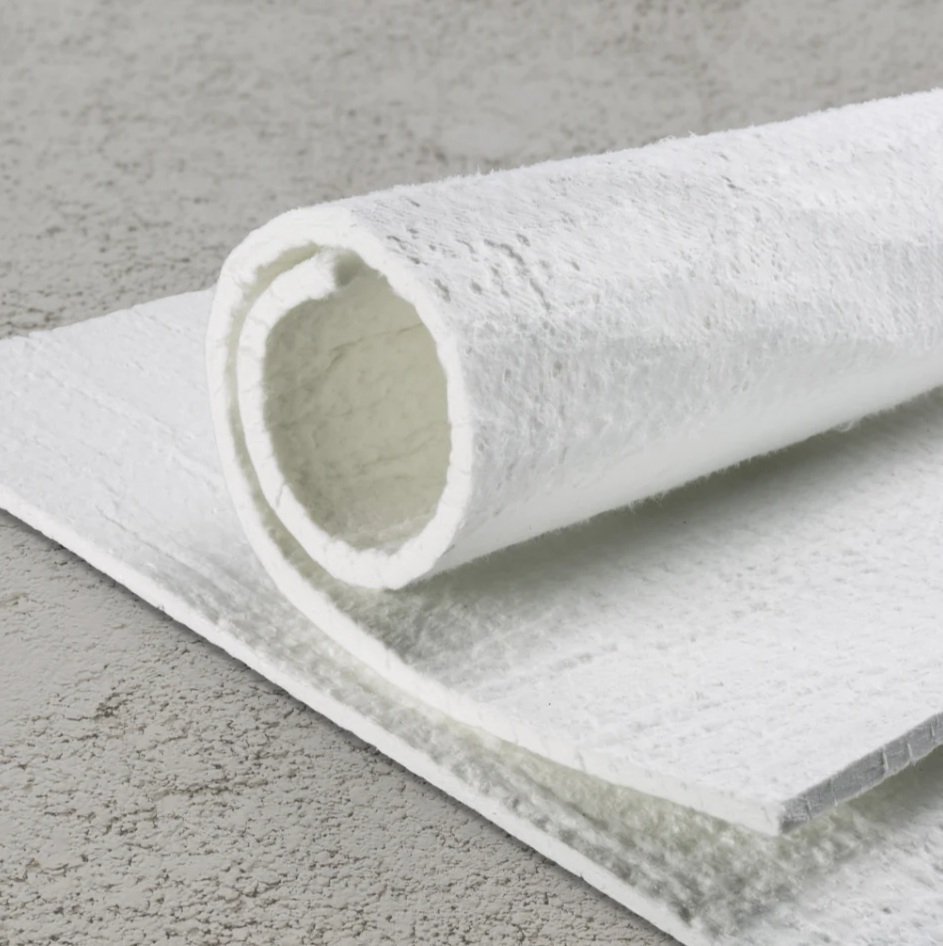Choosing an Environmentally Conscious Insulation
Insulation is an essential part of construction that helps regulate temperature and reduce energy consumption. However, traditional insulation materials can have negative impacts on the environment due to their manufacturing process, disposal, and potential health hazards. Fortunately, there are several environmentally friendly types of insulation that can be used in construction.
Cellulose Insulation
Cellulose insulation is made from recycled paper and is one of the most environmentally friendly insulation options available. It has a low environmental impact and can be produced using sustainable manufacturing practices. Cellulose insulation is also non-toxic and does not pose any health risks. It comes in loose fibres, which makes it ideal for filling cavities in existing structures- but is messier and more time-consuming than sheet or panel insulation.
Wood Fibre
Wood fibre insulation is another wood derivative, albeit denser and harder than loose cellulose. It is available in panels and slabs, which can be easily cut and shaped to suit the application. It is waterproof and breathable and is typically covered with traditional cladding materials like lime render or timber boarding.
Expanded Cork
Expanded cork insulation is a truly natural material, made from the bark shaved off the cork tree. The bark of each tree can be harvested up to ten times without harming the tree, meaning it is a very renewable material. Cork insulation can be used in both interior and exterior applications, allowing it to be used as both insulation and cladding/facade. When used as a facade, it gives a truly beautiful textured surface, which is both waterproof and breathable. Rich chocolate brown at first, its appearance softens over time and turns a mellow silver.
Sheep’s Wool
Sheep wool insulation is a natural and renewable insulation material that is becoming increasingly popular in construction. It is produced using the wool from sheep and is treated to make it fire-resistant and pest-resistant. Sheep wool insulation is also biodegradable and can be easily recycled- however it comes at an increased cost over other options.
Hempcrete
Hempcrete insulation is a natural and renewable insulation material that is made from hemp and lime. It is an eco-friendly option that has excellent thermal insulation properties and can improve indoor air quality. Hempcrete insulation is also biodegradable and can be easily recycled. Shown here is a pre-cast structural block, however it can also come in a loose fill format that can be mixed with lime and poured in-situ.
Recycled Denim
Recycled denim insulation is made from post-consumer denim and cotton material. It is a sustainable and eco-friendly option that has excellent thermal insulation properties. Recycled denim insulation is also easy to install and does not pose any health risks - unless the current industry standards of PIR, EPS and fibreglass. Like others in this list, it is still more expensive than the incumbent fossil fuel-derived options, however it is gaining traction, which is bringing the price down.
Aerogel
Aerogel insulation is an extremely high-performance insulation material that is made from silica aerogel. It is environmentally friendly and has a low carbon footprint. Aerogel insulation is also lightweight and has excellent thermal insulation properties. However, it is a relatively new insulation material and can be very expensive. Perhaps one day it will be found in construction sites across the world, however it is currently found only in very specialist applications, such as cladding steel beams when there is very limited space available for other options.
Environmentally-friendly insulation materials are becoming increasingly popular in construction due to their low environmental impact and positive effect on energy efficiency. When choosing insulation materials for a construction project, it is essential to consider their long term environmental impact and potential health hazards - from manufacture, to installation, usage and disposal. By selecting eco-friendly insulation materials, we can reduce our carbon footprint and contribute to a more sustainable future. Demaus & Marsden garden rooms are bespoke, and we choose the most appropriate insulation type for the project. We are environmentalists at heart and in practice, and we want to leave the smallest impact we can.







